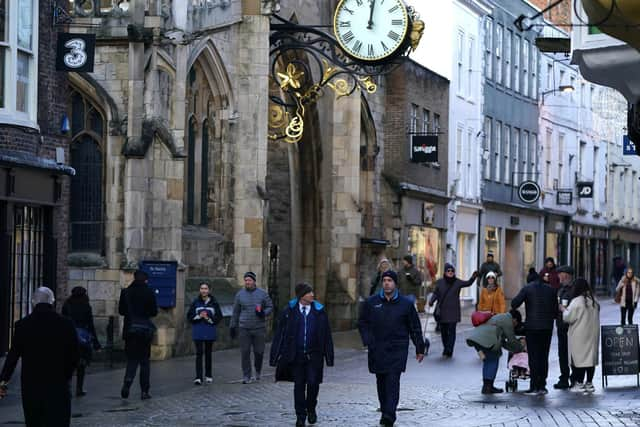Yorkshire's health leaders 'seriously concerned' about new variant spreading despite region's low rates
A new Imperial College London study sets out how the new variant, which is thought to be up to 70 per cent more transmissible than the original virus, is responsible for 85 per cent of new cases in the South East but just 15 per cent in Yorkshire.
The new variant is thought to increase the crucial R rate by between 0.4 and 0.7, potentially resulting in thousands of new cases a day if allowed to spread.
Advertisement
Hide AdAdvertisement
Hide AdAnd one expert said unless further immediate action was taken the variant would quickly start to take hold in areas where it was not already the dominant strain.
Deepti Gurdasani , a senior lecturer in Epidemiology at Queen Mary University of London, said on Twitter: "It's clear that although the situation is dire now, there is potential for it to get much worse.
"Given the rises we're seeing in variant frequency in other regions, if we don't act now, not only will exponential rise continue, but the rate of rise will increase."
She said allowing the new variant to take hold would lead to a "devastating" increase in case numbers within weeks, with potentially thousands of extra cases every day.


Advertisement
Hide AdAdvertisement
Hide AdProfessor Neil Ferguson of Imperial College London said the high transmissibility of the new variant would "make control more difficult and further accentuates the urgency of rolling out vaccination as quickly as possible”.
The Yorkshire Post understands that senior public health officials in Yorkshire are "seriously concerned" about the new variant but because levels remain relatively low there is an opportunity to delay the impact.
People who travelled back to the region from London and the South East before Christmas were asked to stay at home and act as if they already had the virus.
But officials believe it is inevitable that rates in Yorkshire, which are the lowest of any region in England, will start to increase soon because of the impact of Christmas mixing and the new variant.
Advertisement
Hide AdAdvertisement
Hide AdLeaders are urging people not to mix with other households, wear a mask if indoors with others and follow self-isolation rules if exposed to the virus.
By doing this, the hope is that as many people as possible can be vaccinated before the inevitable rise in cases.
Meanwhile a senior Yorkshire medic says the added pressures being seen at London hospitals in dealing with the volume of coronavirus patients had started to spread across the country.
Dr Alison Pittard, dean of the Faculty of Intensive Care Medicine and a consultant in Leeds said the problems in the capital were becoming more widespread.
Advertisement
Hide AdAdvertisement
Hide AdShe told BBC Radio 4's Today programme: "Everyone has seen what is happening in London and the pressure that is putting both on organisations and on staff as well, and we fear it is only a matter of time before it starts to spread to other parts of the country, and we are already starting to see that.
"It is really important that we try and stop the transmission in the community because that translates into hospital admissions."
Dr Pittard said staff had become "tired and exhausted" due to the increased workload following a number of hectic months dealing with coronavirus patients.
She added that moving patients to less busy hospitals for intensive care treatment was a "logistical nightmare" and took up additional staff time.
Comment Guidelines
National World encourages reader discussion on our stories. User feedback, insights and back-and-forth exchanges add a rich layer of context to reporting. Please review our Community Guidelines before commenting.
